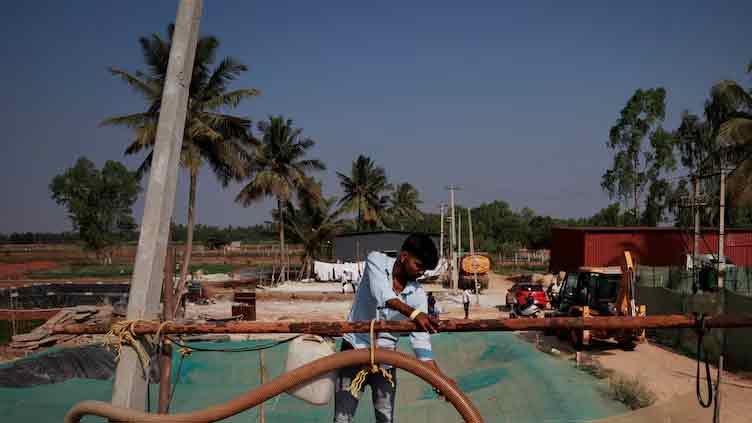The water tanker drivers who keep 'India's Silicon Valley' Bengaluru going

Business
Bengaluru has lost 79pc of its water bodies and 88pc of its green cover over 40 years
- With summer yet to reach its peak, dealers begin charging some residents almost double the amount per tanker
- The water is purified for drinking, and the wastewater is drained out, but even that liquid is in demand now
BENGALURU (Reuters) – Basavaraj, a water tanker driver in India's tech hub Bengaluru, has to leave home by 6:30 am each day to collect enough water for his customers, who now depend on his services for a very basic need.
Read more: Water shortage in India's Silicon Valley: Bengaluru is a template for urban ruin, says activist
Residents of the southern city of 14 million people, capital of Karnataka state and often called "India's Silicon Valley", have been reeling due to water shortages amid unusually hot weather.

The 22-year-old fills up his tanker at a man-made pool fed by four boreholes in the north of the city, then does rounds of four or five buildings whose residents are his regular customers.
The pool's owner Nandish says he can supply fewer tankers now.
"Around 40 tankers used to come here every day earlier but now only about 15-20 come as water from the bore wells has also reduced," he said.
Once dotted by lakes and forest cover, Bengaluru has lost 79 per cent of its water bodies and 88pc of its green cover over 40 years, while areas covered by concrete have increased 11-fold, according to the Indian Institute of Science.

With summer yet to reach its peak, water tanker dealers began charging some residents almost double the amount per tanker, forcing the state government to cap prices at 1,200 rupees ($14) per unit – triggering a brief strike by some water tank providers.
Daisy, 60, lives close to Basavaraj and next to a privately owned borehole supplying water locally for free. The water is purified for drinking, and the waste water is drained out, but even that liquid is in demand now.

"We had to fight with the owner of the borewell to give us waste water," Daisy said. "We use it to wash dishes and clothes."


